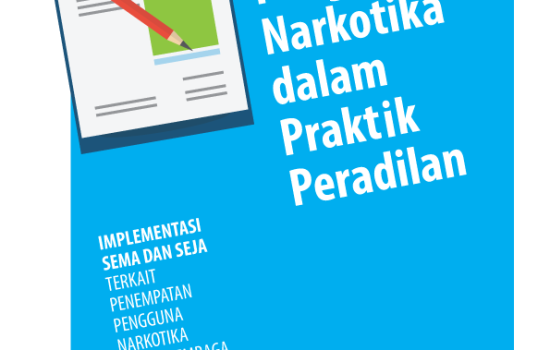ICJR has volunteered as an indirect related party applicant in this case on 12th August 2016
The Constitutional Court of the Republic of Indonesia (Mahkamah Konstitusi – “MK”) is currently examining Case No: 46/PUU-XIV/2016 related to the review to Article 284, Article 285 and Article 292 of the Indonesian Criminal Code (KUHP) against the 1945 Constitution, which proposed by Prof. Dr. Euis Sunarti, et al, acting as a Professor from Bogor Agricultural University (IPB). In their petition, specifically Article 284 (relating to adultery) and Article 292 (on prohibition of to conduct homosexual act with children), the applicant requested the MK to decide those articles to be inapplicable, as long as it is not considered as the expansion of an adultery act under Article 284, which stated that the two elements of adultery (one of the perpetrators of the adultery is married and there should be no complaint) are not necessary. Moreover, relating to Article 292, the applicant requested the removal of the phrase “children”, so that all kinds of homosexual act can be punished.
Institute for Criminal Justice Reform (“ICJR”) assesses that if the above-mentioned petition is granted by the MK, specifically related to Article 284 and Article 292, Indonesia will potentially face the so-called crisis of over-criminalization, which is the abundance of acts that can be punished. This situation will lead to several things:
First, it will increase the rate of conviction and enlarge the number of criminal perpetrators. This will have a direct impact to the obligations of the State relating to criminal policy, expanding facilities in litigation, law enforcement and detention center.
Second, these conditions will result in changes on criminal policy priorities Indonesia. The government’s priority will be divided in fighting priority criminal acts, such as corruption, drugs, terrorism and other organized crime. Currently, Indonesia is still facing a difficulty in facing these kinds of crimes. Focus of the government will be divided with the additional work to deal with articles relating to decency, which is not a priority for Indonesia at this moment.
Third, criminal policy that wants to expand the crime relating to decency will make a State to go way further in controlling the very privacy rights of its citizens. A State would be very easy to mix private and personal issues with public affairs. This will disavow criminal law as a last effort to resolve legal issues (ultimum remedium). In other words, there will be no respect on privacy rights of the citizens, because in the name of criminal law, State would be free to meddle in the private affairs of its citizens. So you can imagine, police will be more repressive and has bigger authority to meddle into the private area of its citizens.
Fourth, the assumption that a State has the capacity to ensure security, maintain the level of legal compliance, and be able to control the crime rate will collide with the limited capabilities of that state in question. Consequently, public will assess that a State is unable to perform its functions and duties. The worst thing, there will be a “vigilante” as a result from the high rate of public distrust due to the limited capability of a State in handling numerous criminal cases.
On that basis, ICJR has volunteered as an indirect related party applicant in the above-mentioned case on 12th August 2016. ICJR requested that the petition on the revision of crime relating to decency to be not granted by the MK.




